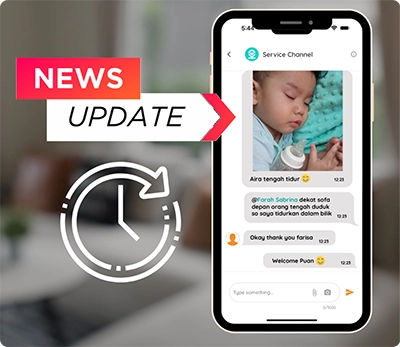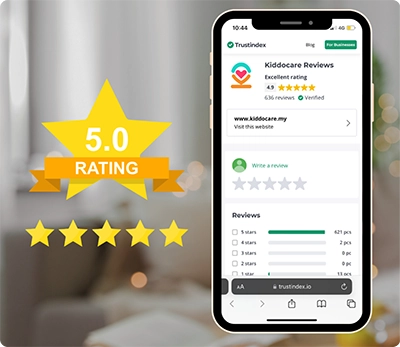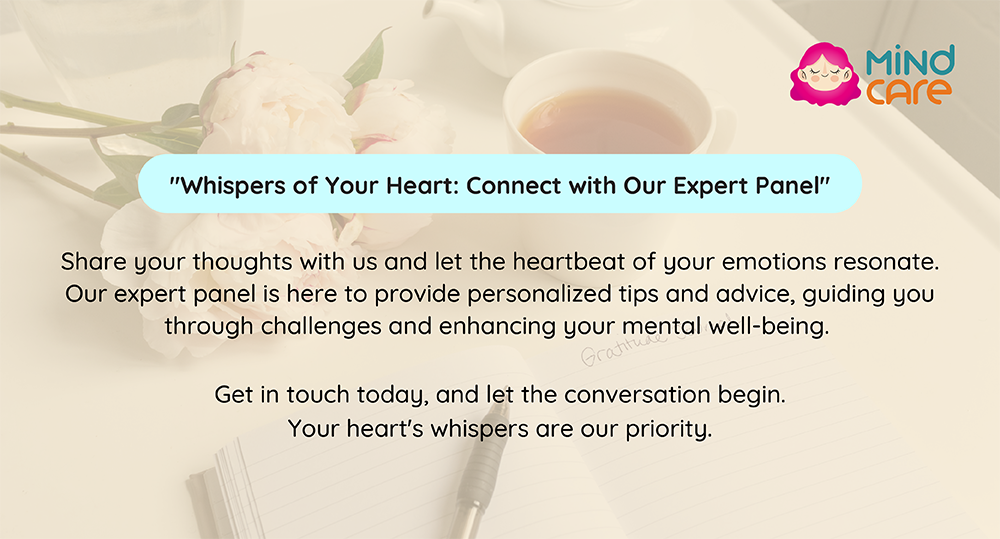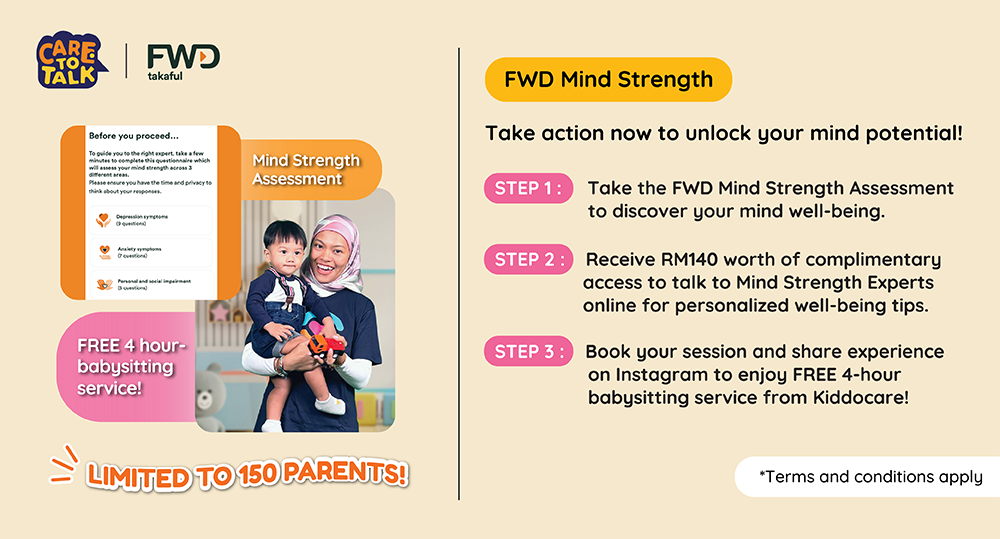Breaking the Chains of Stigma: Changing Perspectives on Mental Health
It’s 2023 and we have gone through so much; the Covid-19 that haunts us to this very day (And yes, we want to forget about that), the increase number of unemployed citizens in Malaysia, the rising cases of Influenza and now the most common would be the haze that is spreading within Malaysia.
If there’s one thing we’re concerned about, it would be this, ‘How am I doing mentally? Am I coping well?’ It would also be somewhere along this line, ‘Is my family doing okay? What about my child, is she feeling alright?’
Let’s face this reality that we are dealing a lot with mental health especially since the first nationwide lockdown of the Covid-19. Almost four years have passed but we cannot put down the idea that the world would be better if Covid-19 had not existed in its entirety. But the damage has been done and we need to move on but our mental health has been affected ever since.
Some of us may feel like we’re stuck in a loop reliving the week over and over again. Some of us may think that earth is like a big box and we’re stuck in here forever. Some may feel like they are just too tired to even wake up from bed. Some others think that parenthood is very tough and they are just waiting for their bedtime and some others feel it’s too much work and too little of family time.
And when we want to speak up, it’s even tougher. Why? Why is it so hard for us to speak up? Why is it difficult for us to tell our problems? Well, the problem lies with a word that starts with an ‘S’. If you think the word is shame, you are not entirely correct. The word we’re looking for is stigma. It refers to a negative and often unfair perception associated with a particular circumstance, quality or person.
It’s really common that if we bring up mental health, that person may be considered as weak or crazy. If a man or even a boy aged 11 years old would like to say that his mental condition is bad, some people think it’s fitting to say ‘men should not cry or complain’ which is just fundamentally wrong to say that to someone, let alone a child.
But this is the reality. The reality that we’re facing and we have to bottle up our emotions and feelings because our society doesn’t know how to care and doesn’t accept the notion that mental health is something that each person goes through every day. And just because one person can go through it alone doesn’t mean that others cannot seek help that they need.
This stigma should be stopped. We think it’s time to raise our voices against stigma about mental health especially when there are so many events that are happening in today’s fast-paced world.
‘If You Experience a High Fever, Does That Mean You Are Weak?’

Let’s be metaphorical for a second. This is so we can understand more about human nature. If someone has a mental health condition, why do people always refer to them as weak, fragile or incapable of facing great challenges in life or some may even say crazy? But if someone has a high fever, high blood pressure or even diabetes, why isn’t there a stigma going around saying that they are weak?
This stereotype of labeling a person ‘weak’ or ‘fragile’ does not only perpetuate misunderstanding but also deters you from getting the help that you need. How can we open up about our feelings if the only thing society is doing is to judge us based on the one thing that we are asking for help? Rather than labeling a person this or that, we should help them go through the struggles. It all lies down to the basic foundation of change; awareness. Awareness that because a person is experiencing a health condition, doesn’t make them weak. Use the metaphor given to educate people in a catalyst mode, making them realize that their perception this whole time is merely a totally false predicament. Promote accurate information about mental health. If you hear this stigma is being debated in your home or at your workplace or even at gatherings or events, don’t think twice to educate them and change their thoughts on mental health.
Don’t Be Afraid to…

Before we finish this sentence, why is it that it is always a hush-hush when we converse about mental health? Why can’t we talk more about mental health? Why can’t we talk about mental health in a way that we talk about everything else? Of course, there are limitations to it where some things are more sensitive than others and it might be personal but it’s not wrong to genuinely ask a person if they are okay or talk about the struggle that a person is facing.
Don’t be afraid to be open to conversations about mental health.
This is a start for making others feel comfortable about this subject. We don’t necessarily need to talk about ourselves but anything that surrounds mental health can also make ways to ensure that discussing this is not a taboo nor is it something offensive.
It gives everyone involved the idea to share their personal stories and struggles alongside anything and everything they know about mental health. It also gives an opportunity for us to humanize mental health conditions and show that they can affect anyone, just like a high fever or cancer.
But…. You Need to Know Something

Like we’ve mentioned, mental health is a sensitive subject because it deals with people’s emotions and state of mind. Conversations can really help someone but it can also be damaging if it’s not done properly. The way we describe mental health conditions can either perpetuate stigma or challenge it. Stigmatizing language reinforces negative stereotypes and can lead to feelings of isolation, shame and discrimination. But language can also help to destigmatize false notions. Using neutral or destigmatizing language helps reduce the negative connotations surrounding mental health. This language can emphasize that help-seeking is a sign of strength which encourages anyone including caregivers to seek the support they need without shame.
When we talk about mental health or generally many other topics, words we use can influence our thoughts and perceptions. There’s a difference between saying ‘I am good’ and ‘I am great’. Which sounds happier? ’Great’ shows that you’re emphasizing more excitement than using ‘good’. Saying that someone is ‘unstable’ or ‘deranged’ is derogatory. We should use respectful and empathetic language to promote a positive attitude of mental health. Whether in front of your friends, colleagues or your children, it’s necessary that we normalize talking in language acceptable generally by everyone, creating a healthy culture of humanizing mental health, reducing the stigma associated with it, and fostering an environment where seeking help or support for mental health concerns is encouraged and embraced. This collective effort can lead to a society where emotional well-being is prioritized, and individuals feel safe and supported in their mental health journey.
Walk the Talk

We can talk about mental health as much as we want, all day long. We can say the right things about mental health. We can get 100 different books or hear different podcasts from a variety of speakers and channels about the topic and read it incessantly to the point that we master everything we need to know about mental health. And yes, we can educate other people and share our knowledge with them.
But… this means so little to us if we keep on harboring self-stigma on mental health. Self-stigma means you are jeopardizing yourself with a negative attitude that people with mental health conditions have about their own condition. You may feel embarrassed or disappointed in yourself for being ill. You may apply stereotypes to yourself such that you cannot make decisions or are very slow at work. You may feel like you are out of place or a burden to yourself, like an embarrassment to your loved ones.
Volunteering for an NGO, helping your friends and attending mental awareness events are all good but the voices in the head that contribute to self-stigma can be the most persistent and challenging to silence. While external actions like volunteering and attending awareness events are valuable, addressing self-stigma often requires an internal journey of self-compassion, self-reflection, and self-acceptance. These internal voices can be tamed through self-awareness, positive self-talk, exercise like yoga and seeking professional support when needed. Lessen down negative thoughts, take a break from watching news or movies that are violent, even mildly. Remember, mental health is as important as physical health, and it’s okay to seek help and be kind to yourself in the process.
Written By:
IAN FIRDAUS
References:
https://www.nami.org/Blogs/NAMI-Blog/October-2017/9-Ways-to-Fight-Mental-Health-Stigma
https://www.psychiatry.org/patients-families/stigma-and-discrimination








































